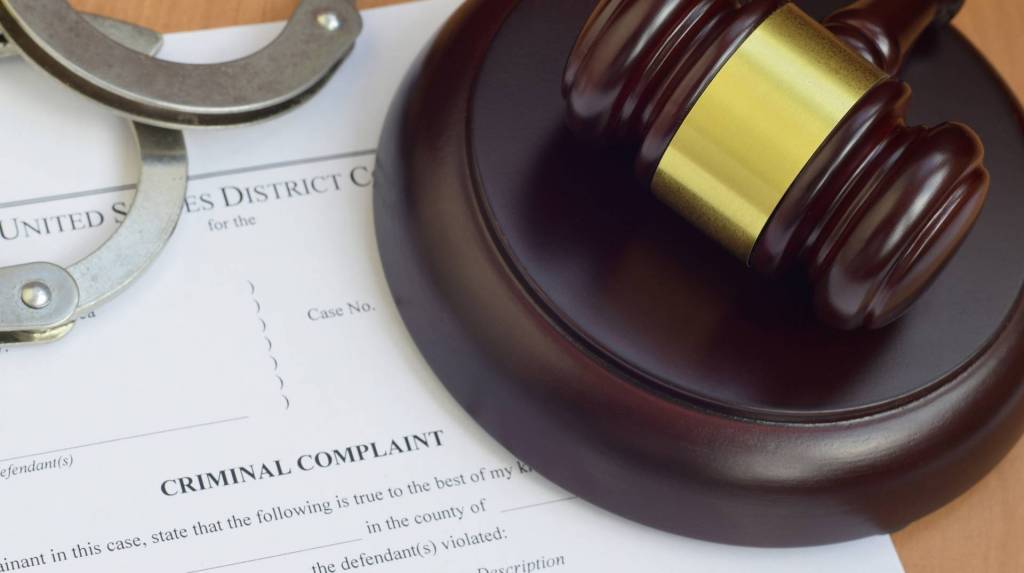If you are charged with a crime in Southern California, you must be advised and represented by a Los Angeles criminal defense attorney. You will need to contact that attorney as quickly as possible, and you will also need to insist on – and exercise – your legal and constitutional rights.
A “Miranda” warning is the warning that is read by the police to criminal suspects who are in police custody. The Miranda warning advises suspects of their right to remain silent and their right to refuse to answer questions or provide information to law enforcement officials.
If you are in custody and about to be questioned, these rights must be read to you: “You have the right to remain silent. Anything you say can and will be used against you in a court of law. You have the right to an attorney. If you cannot afford an attorney, one will be provided for you.”
What is the History of Your Miranda Rights?
The phrase “Miranda rights” is derived from the 1966 U.S. Supreme Court decision in Miranda v. Arizona. In that decision, the Supreme Court determined that the legal rights of Ernesto Miranda had been disregarded by Arizona police during and after his arrest on felony charges.
Since that ruling, the police have been obligated to read a suspect’s Miranda rights, but only after placing the suspect under arrest and prior to interrogating the suspect. Some people may think they can talk their way out of anything, but you are not going to “win” a police interrogation.

Police interrogators are trained and usually quite experienced. They know how to exploit a suspect’s fears and uncertainties to obtain incriminating statements. It’s better to resist any impulse to explain yourself, and instead, let your defense lawyer do the talking on your behalf.
When Do Your Rights Have to Be Read?
Miranda rights apply to everyone at all times. No one, ever, is obligated to answer questions asked by the police. However, the law only requires law enforcement officers to read your Miranda rights in the period after your arrest but prior to any formal police questioning.
If you have not been placed under arrest, whatever you tell a police officer may be used against you, but the police are not required by law to tell you that. Instead, the police have to read your Miranda rights to you only if you are in their custody and they are about to interrogate you.
In fact, the police may postpone an arrest specifically so that they can question a person of interest – and possibly obtain incriminating statements – without having to read that person’s rights. Many lawyers will tell you to never talk to the police unless your own lawyer is present.
What if Your Rights Are Not Read?
You can’t commit a serious crime and then expect to be set free because your rights weren’t read to you. If your rights were not read to you, in many cases you will still be prosecuted, but what you’ve said to law enforcement officers – in most cases – cannot be used against you at trial.

The law also recognizes a number of exceptions to a police officer’s duty to read your rights. For example, if law enforcement officers are dealing with what they believe is an immediate life-and-death emergency, they are not obligated to read your Miranda rights to you.
In 2013, the New York police were looking for a severely injured victim who needed immediate medical attention. When they took a blood-covered suspect into custody, they questioned him immediately about the victim’s location, and that state’s highest court permitted the exception.
What is a Booking Question?
The criminal courts in California recognize another exception for “booking” questions. These are the standard questions a police booking officer may ask while you’re being photographed and fingerprinted: your name and address, date of birth, your weight and height, and your employer.
Booking questions are not meant to elicit incriminating information, so these questions do not establish a formal investigation. Rather, answers to booking questions are used to identify suspects and ensure their safety. Booking officers generally don’t read anyone’s Miranda rights.
Will Charges Be Dropped if Your Rights Are Not Read?
As mentioned above, if the police don’t read your Miranda rights after arresting you but prior to questioning, your Los Angeles criminal defense lawyer will file a motion to suppress so that the state won’t be able to use your (possibly incriminating) answers to those questions at trial.
The reality is quite different from the police shows on television where all charges are dismissed after a failure by police to read a suspect’s Miranda rights. Instead, to prosecute a defendant, the state must present other evidence apart from the defendant’s own “unMirandized” statements.
What’s the Best Way to Handle a Police Interrogation?
Law and Human Behavior, the journal of the American Psychology-Law Society, several years ago surveyed more than six hundred police investigators. The investigators reported that about four out of every five suspects answer their questions without consulting a defense attorney.

Especially if you have been arrested and charged with a crime, you must exercise your Miranda rights. Your future and your freedom may be at stake. You can simply say something like, “I prefer not to answer your questions until my lawyer can be present,” and then say no more.
What’s Important to Remember About Your Miranda Rights?
If you are placed under arrest and charged with a crime in the Los Angeles area – or anywhere else in Southern California – you must exercise your Miranda rights, and you must arrange as quickly as possible to speak with a Los Angeles criminal defense attorney.
When you are in police custody, do not confess to anything, sign anything, or agree to any “deal” with the law enforcement authorities unless and until you have consulted a Los Angeles criminal defense lawyer.
Your lawyer will protect your rights, investigate the charge, review the evidence, question any witnesses, and bring your case to its best possible conclusion. If the case goes to trial, your lawyer will cast doubts in the minds of the jurors regarding the state’s evidence against you.
At trial, your attorney will offer exculpatory evidence, seek to suppress unlawfully gathered evidence, challenge any unreliable witnesses, and provide you with effective, aggressive defense representation. Every criminal defendant must have a good attorney’s advice and services.










